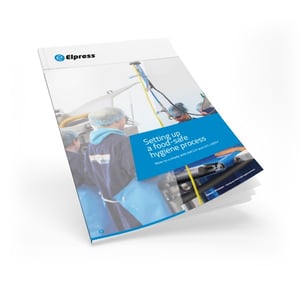How to comply with HACCP and ISO 22000?

National and international law and legislation in the area of food safety is becoming increasingly strict. Companies that are active in the food sector are obliged to comply with statutory hygiene regulations when preparing food and drink products. This means that companies producing, processing or distributing food must organise their operations in such a way that food safety is systematically ensured in order to guarantee consumer safety.
It is not only legislation that is increasing the pressure. In more and more countries, large retailers, such as supermarket chains, are joining forces, giving them a strong position of power over suppliers. Retailers attach increasing importance to improving food safety and are therefore setting more and more requirements with regard to the certifications that suppliers must comply with in order to be allowed to supply.
Companies that are active in the food sector are therefore forced to go about setting up a food-safe hygiene process which they must also keep up to date. This means, among other things, that they have to draw up an HACCP plan and make provisions in practice in order to be able to comply with it. In this white paper we will tell you about: